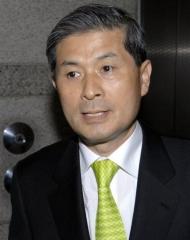 No, not that one, but another one has been caught faking scientific research data, this time from the prestigious Korean “Caltech”, KAIST. His name is Kim Tae-Kook, caught fabricating data, even in an article published in the prestigious Science Magazine, has officially been suspended.
No, not that one, but another one has been caught faking scientific research data, this time from the prestigious Korean “Caltech”, KAIST. His name is Kim Tae-Kook, caught fabricating data, even in an article published in the prestigious Science Magazine, has officially been suspended.
Even though this news seems tragic, and really embarrassing, I really do see this news as very positive because it will institute rapid change in bioethics in Korea.
When I worked in Korea at a lab, there were many things that were shocking…the way Korean scientists handled research animals, submitted papers to peer-reviewed journals, or treating patients in the hospitals…very different from what I was used to American labs or hospitals.
I think the peak of my shock about ethics happened when my friend, a med student at a Korean university, told me she had a patient in the hospital dying of AIDS, and the patient’s parents (in order to “protect” him) decided not to tell him he had AIDS and that he was dying of AIDS complications. The physicians all kept his diagnosis from him, in order to “protect” him. I couldn’t believe it. I grilled my friend, “Are you sure? Are you sure the patient didn’t know he has HIV?” She said many times that she knows for sure that many patients in hospitals are not told they have HIV…she told me that in most cases, doctors will tell the parents of the male patient if the patient has AIDS, but will not tell the wife. (In this case, the male patient was gay so he did not have a wife). To my ears, this was so incredibly shocking…can you imagine how many HIPAA rules that breaks? I went home and asked my dad, who was working as a visiting professor at the Seoul National University Medical School, and he said that was a very common practice, “hiding” diagnoses from patients in Korean hospitals, especially if the diagnoses is stigmatized and “embarrassing”.
Now, this is all from my personal experience, so I cannot vouch that this happens at all hospitals in Korea or Asia. I can only hope change will occur quickly, and I do know from a personal source that Seoul National University is very upset they did not make the top 100 medical schools in the world. (Or was it top 100 hospitals?) I am not sure. While SNU is poised to attract prestigious professors to their faculty in order to raise their global ranking, I can only hope change can occur quickly.
Ethics is seen often by many clinicians as a “luxury”, “a bother” and “more paperwork” in American and abroad, but in cases such as these where there is such little oversight, I have much hope that change will occur quickly. Most of the time, the ends do not justify the means, especially if the ends are faked.








